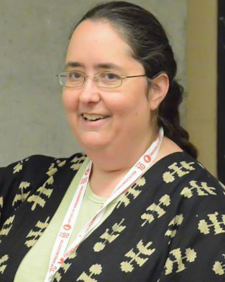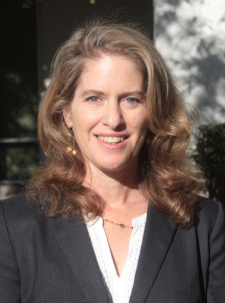DAWN ARCHER
Manchester Metropolitan University, Manchester, UK
Manchester Metropolitan University, Manchester, UK
 |
Dawn Archer is a Professor of Pragmatics and Corpus Linguistics at Manchester Metropolitan University, UK. As well as pragmatics (the study of meaning in use) and corpus linguistics (the study of texts using computerised tools), she specialises in forensic linguistics (especially deception and its detection) and (critical) discourse analysis. Her most recent C/DA-related work explores the language used by politicians like Donald Trump and the language used by social influencers like Andrew Tate, and the extent to which they can be argued to be manipulating others via their (strategic) use of specific, self-serving reality paradigms. |
| Keynote address Exploring deception / manipulation (online) using Trump as a case study |
| Abstract This keynote draws upon President Trump’s recent interactions on his online social media platform, Truth Social, to demonstrate how he attempts to manipulate the reality paradigms of his base so that they interpret specific events through a particular (namely, his) perceptual lens. Reality paradigms, here, equate to the truth filters that individuals see through, draw from, and rely upon when making sense of the world, thereby colouring their worldview (Archer 2002, 2011, 2020, forthcoming). The presentation will focus upon the linguistic features that Trump draws upon most regularly, linking these to the discourse “moves”/fallacies discussed in detail by authors such as Mercieca (2017, 2020), who have also extensively explored Trump’s rhetorical strategies (including but not limited to ad hominem, ad baculum, ad populum and reification). Special attention will be paid to his recent unusual behaviour of attacking his supporters, not just those he frames as enemies (see, e.g., the recent fallout over the Epstein files). |
North Carolina State University, Raleigh, US
 |
Both my first career as a lawyer and my PHD work on Cicero’s deliberative rhetoric guided me to an interest in argumentative discourse. It should be a puzzle: how citizens who disagree, sometimes deeply, can nevertheless manage a productive exchange of reasons with each other. Pursuing this question led me to contribute to the emerging normative pragmatic approach to argumentation through both empirical and theoreticalwork. In recent years my scholarship has focused on public controversies with a strong sociotechnical flavor (think: climate change), and especially on the participation of scientists as arguers. I’m now SAS Institute Distinguished Professor of Rhetoric & Technical Communication at NC State University, teaching rhetoric, science communication and civic discourse |
| Keynote address Constructing the contemporary audience for argument |
| Abstract The audience of argument is a construction of the speaker; so Perelman has told us. For reasons of both effectiveness and ethics, arguers therefore need to get their audiences right. In this talk, I will hazard that some of the woes of contemporary public argumentation result from failures to adequately construct an audience. Social scientific research has shown that we tend to overestimate others’ extremism, due in part to biases in social cognition and to the misleading impacts of social media. These misunderstandings of others’ political views lead to pathologies in the practice of argumentation, especially a deformation of the disagreement space away from the consequences of a policy in addressing a problem in the world and towards its consequences on those who are perceived as extremists. Imagined polarization can thus become real polarization, as arguers feel justified in taking as enemies those who have in their arguments taken them as enemies. I close with some–likely inadequate!–suggestions about what this argumentation studies community can do to respond to the challenge, and by emphasizing the continued importance of attention to the social dimensions of argumentation. Argumentation is persons exchanging arguments, and if we can help the persons better understand what they owe each other, we can trust them to improve the quality of their arguments. |
MIRIAM METZGER
University of California, Santa Barbara, US
 |
Dr. Metzger earned her doctorate from the Annenberg School for Communication at the University of Southern California and has been teaching at UCSB since 1998. She is also affiliated with the Center for Information, Technology and Society and the Center for Responsible Machine Learning at UCSB. Dr. Metzger’s research appears in the top journals in her discipline including, for example, Human Communication Research, Journal of Communication, Communication Research, Journal of Computer-Mediated Communication, Journalism & Mass Communication Quarterly, New Media & Society, and Media Psychology as well as in interdisciplinary journals such as Science, Journal of the American Society for Information Science & Technology, and Computers in Human Behavior. She has served on the editorial board of several disciplinary journals, including as Associate Editor for the Journal of Computer-Mediated Communication. Dr. Metzger has also delivered numerous keynote speeches around the world on topics such as fake news and misinformation, and how people manage their privacy in online environments. |
| Keynote address Credibility at a Crossroads: Lessons from the Past and a Look to the Future |
| Abstract This talk will open by looking at how past research in the social sciences helps us understand why people believe misinformation—even in the face of correction and, based on that, how to design interventions to counter misinformation and fake news most effectively. It will then consider questions about the future of credibility as the digital society evolves to incorporate more and more AI-generated information. |